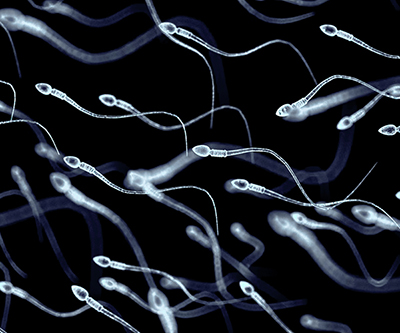
NICHD researchers are developing new, reversible types of male contraceptives. Currently, men are limited to condoms, which provide a physical barrier, and vasectomy, which is intended as an irreversible procedure. In a new study led by the Contraceptive Development Program, researchers designed, synthesized, and conducted early testing on novel molecules that are designed to suppress sperm production.
- The study team created new molecules based on what’s already known to work well or not work well as a male contraceptive.
- These new molecules are “testosterone analogs,” meaning they act similar to testosterone but have chemical differences to optimize their function as a contraceptive. They’re called C7 α-substituted testosterone analogs, and the study team created 7α-MT and 7α-ET.
- In a series of studies using cells and animal models, the team reported that 7α-MT and 7α-ET have contraceptive properties superior to previously studied analogs. For example, they could bind much better to their intended receptors.
- Importantly, 7α-MT and 7α-ET do not impair estrogen production, which is necessary for optimal bone mineral density and bone health. Earlier studies on testosterone analogs showed that they might negatively affect bone health. Therefore, 7α-MT and 7α-ET are likely better options for long-term use in people.
- Overall, the findings support additional research on these new molecules to evaluate their safety and efficacy.
NICHD co-authors of the paper include Min S. Lee, Jeffrey M. Kroopnick, and Diana L. Blithe.
Learn more about the Division of Population Health Research (DiPHR): https://www.nichd.nih.gov/about/org/dir/dph.
 BACK TO TOP
BACK TO TOP